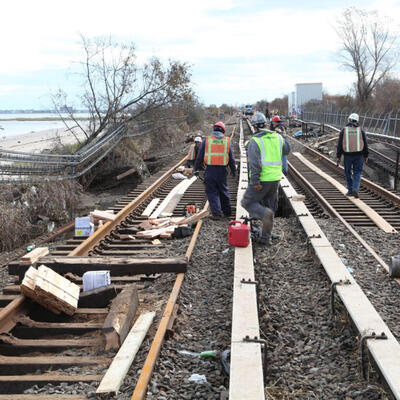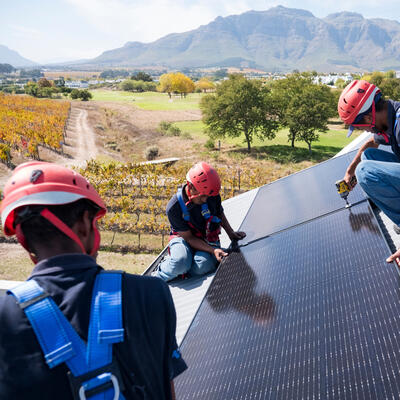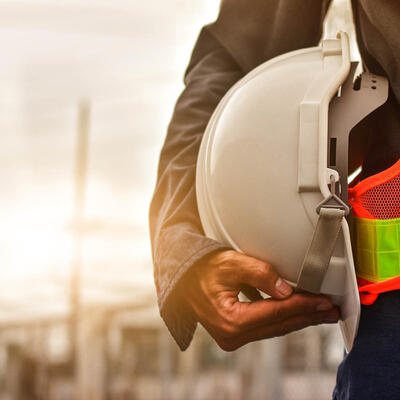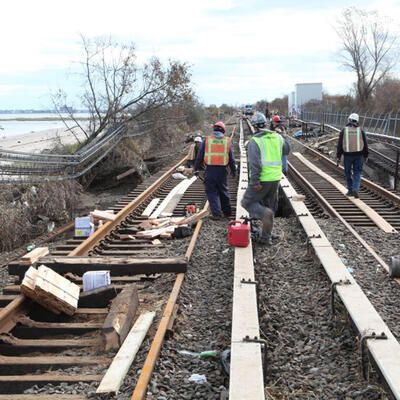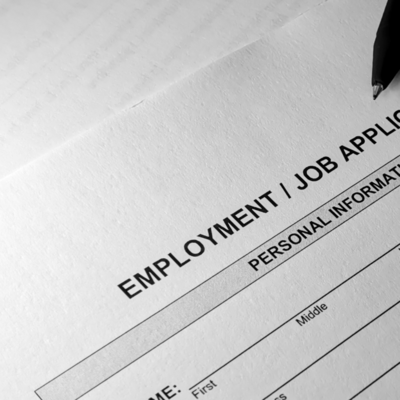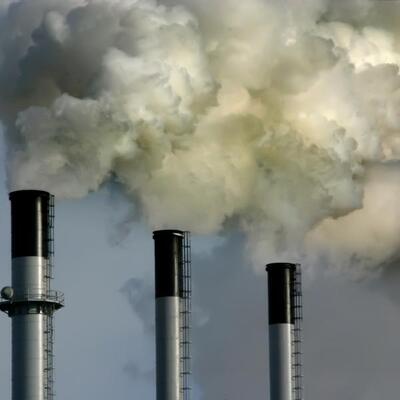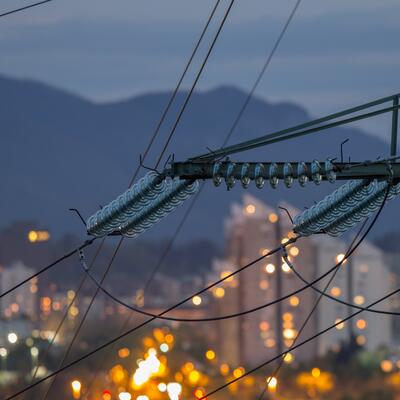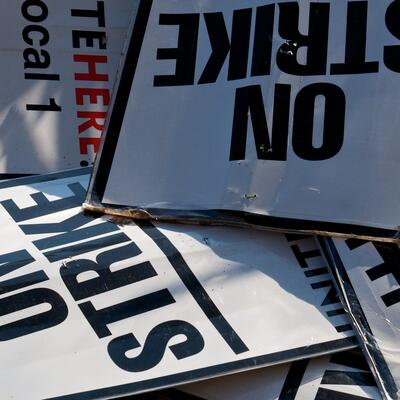
Unions You Wouldn't Expect Bargaining for Climate Action
Guests

Terri Gerstein
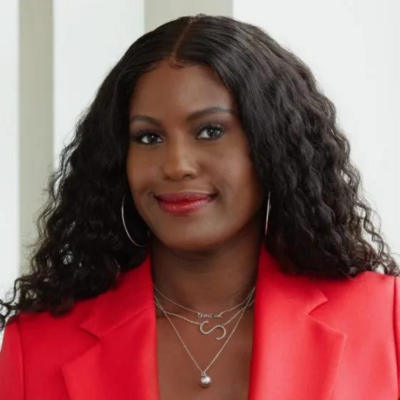
Stacy Davis Gates

Anita Seth
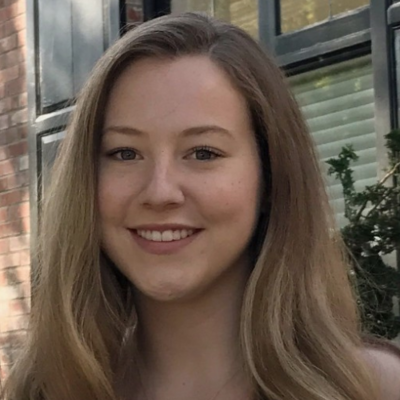
Emily Minkus
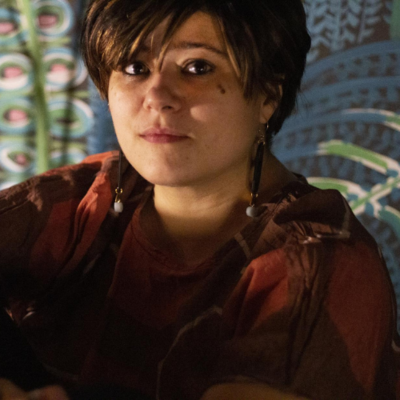
Alana Casanova-Burgess
Summary
Last year was the hottest in recorded history, and this summer, much of the United States has already experienced record-shattering heat waves. That leaves millions of workers risking their health and possibly even their lives while on the job.
According to the National Weather Service, heat kills more people each year than hurricanes, floods and tornadoes combined.Terry Gerstein, Director of The Labor Initiative at NYU, says “People can start out getting heat exhaustion,” says Gerstein. “If it gets even more serious, people can have heat stroke. And that is when your body can't control its temperature anymore.” And heat stroke can be deadly.
In the US, there is no federal law that protects workers from extreme heat, but five states do have some form of heat protection: Minnesota, Colorado, Washington, Oregon, and California. Terry Gerstein says protections can be pretty simple: “Workers need water, they need rest, they need shade or [a] cooler area.” Gerstein says that employers also need to do some advance planning. “They need to do an analysis of what are the risks of heat stress in that job and what are they going to do to mitigate it. And then there should also be emergency procedures.”
“In the past three or four years, it's been getting up into the high 90s, low 100 degree weather on extreme occasions,” says Emily Minkus, a member of the UNITE HERE Local 8 union and worker at Homegrown, which she describes as a fast paced eatery in the Seattle area.
“It gets to be very overwhelming because you have to focus on doing your job.
You're a customer facing role. So you also have to remember that and like, try not to really show your true colors, but when customers come in and they notice how hot it is too, and they start asking you about it…it's hard to put on a brave face sometimes,” says Minkus. It’s that kind of heat that led to workers organizing with the UNITE HERE Local 8 to get better contracts with heat provisions.
Anita Seth is president of UNITE HERE Local 8. “What we ended up negotiating is a two temperature threshold. If the store reaches 82 degrees, then people have the right to go home, or get paid time and a half if they stay. If it reaches 86 degrees, then they get double time, or also can go home. They also get additional 10 minute breaks,” Seth says. According to Seth, getting that kind of language into the workers’ contracts came down to their willingness to fight for what they needed, “ I think it really was groundbreaking. And I think we got to that point both because workers were so passionate about this issue in this workplace, and because they were willing to take real action.”
Some unions are pushing even harder to change their workplaces in response to the climate crisis. The Chicago Teachers Union is not only working to help mitigate the effects of climate change on teachers and students, but they also want to decarbonize their schools. Stacy Davis Gates is President of the Chicago Teachers Union. She says, “Our contract proposals around the green work, they all come from our members who have been working inside of coalitions within the communities where they teach.”
“We began to push the district to apply for one of the grants to get electric buses… Our union made it a priority and consequently we won a grant that is going to give us tens of millions of dollars to get those buses produced for our young people,” says Gates. And electric buses are not the only decarbonization method the union is negotiating for. They also want solar panels and heat pumps to bring down the schools’ carbon pollution. Gates says, “ We've expanded this notion of common good, because the need for the common good has expanded exponentially.”
Resources From This Episode (4)
Full Transcript
Note: Transcripts are generated using a combination of automated software and human transcribers and may contain errors. Please check the actual audio before quoting it.
Ariana Brocious: I’m Ariana Brocious.
Alana Casanova-Burgess: And I’m Alana Casanova-Burgess.
Ariana Brocious: And this is Climate One
[music change]
Playback: Which Side are You On?
“My daddy was a miner
And I'm a miner's son
And I'll stick with the union
'Til every battle's won”
Which side are you on?
Which side are you on?
Ariana Brocious: That's Which Side Are You On? written by Florence Reece back in 1931. Reece was the wife of a union organizer for the United Mine Workers in Kentucky, and her song drew attention to the dangerous conditions workers faced in the coal mines.
Alana Casanova-Burgess: That was a century ago, when unions were much stronger. And they fought for workplace protections many of us still enjoy today, a 40 hour workweek, paid time off, weekends even.
Ariana Brocious: Today, unions are still fighting for protections, and they're turning their attention to what workers need now that climate change is making workplaces hotter,
Alana Casanova-Burgess: And not just places we think of, like in construction and on farms. But indoors too.
Ariana Brocious: One of our producers, Austin Colón, spent a summer working in a warehouse and he knows what that kind of heat feels like.
Austin Colón: Yeah, I do. I mean, it was about 10 years ago and I was in between semesters in college and I remember nearly every day on my walk into the building, I'd pass two ambulances stationed outside, which, you know, is a pretty ominous sign.
Alana Casanova-Burgess: What were, what were the ambulances doing out there?
Austin Colón: Well, they were there in case people got overheated on the job. You could see why once you walk in the building, I mean, you could feel the heat immediately. And I can't tell you exactly how hot it was, but it was really hot. And you have to imagine, I mean, this warehouse is huge. It's the size of a couple of football fields and the only heat mitigation they had were these giant fans in the ceiling that really just blew hot air around. And, you know, my job was to prepare packages. So that included walking 10 to 15 miles a day around the entire warehouse. And I remember barely making it to my breaks. And by the time the day was over, I mean, my shirt was drenched in sweat as if I'd like just jumped out of the pool or something. And frankly, I was so worn out. I'm not even sure it was always safe to drive home. And I was in my early twenties at the time. And I had coworkers in their 60s and 70s. I mean, it was brutal.
Alana Casanova-Burgess: It sounds brutal. And that was 10 years ago. There are even more warehouses now, and it's getting even hotter.
Ariana Brocious: Much, much hotter. So workers are in need of protection from these newer dangers and this increasingly unstable climate that we're living in, that we've created.
Alana Casanova-Burgess: And that’s where unions and other organizations are stepping up. There's a landscape of efforts around the country. Terry Gerstein is director of the NYU Wagner Labor Initiative, which works to expand and improve state and local enforcement of worker protection laws.
Terri Gerstein: People generally think about workplace heat as an outdoor worker issue. But indoor workers can be at a lot of risk as well. For example, workers who are working in restaurants or in fast food, if it's not air conditioned, workers in warehouses, also workers who are going in and out, like drivers who are delivering packages and are going from vehicles that may or may not be air conditioned and then working outside.side and back again.
Alana Casanova-Burgess: Carrying heavy packages.
Terri Gerstein: Exactly. Right. And obviously there's a question of what the temperature is. And it's also a question of what the kind of work is because when you're doing work that's extremely strenuous, that's even more of a strain on the body.
Alana Casanova-Burgess: Yeah, can you talk about that strain on the body? What does heat do to us?
Terri Gerstein: So heat is really, it's very dangerous. I think that people sometimes don't. perceive how dangerous it is because we've all been hot, right? It's like easy to minimize it, but it's very dangerous. People can start out getting heat exhaustion and that is the body's response when there's an excessive loss of water and salt, which usually happens through excessive sweating. And some of the symptoms there are headache or nausea, dizziness, weakness, thirst, elevated body temperature. If it gets even more serious, people can have heat stroke. And that is when your body can't control its temperature anymore. Your sweating mechanism fails and your body just cannot cool itself down. And when this happens, the body temperature can rise to 106 degrees Fahrenheit or higher. in 15 minutes. And if a person doesn't get emergency treatment it can cause permanent disability or death.
Alana Casanova-Burgess: Right, I saw that according to the National Weather Service, heat. Kills more people each year than hurricanes, floods and tornadoes combined. That's what you're talking about is that level of high risk. But, as you said, this threat of heat exposure isn't always perceived as dangerous as it is. So what kind of heat protections do workers have in the U. S. right now?
Terri Gerstein: So right now in the U. S., it's a little complicated. OSHA, the Occupational Safety and Health Administration, is the federal agency that enforces workplace safety and health. And the law that it enforces is called the OSH Act. And the law has a general duty clause that requires employers to just generally provide a safe workplace that doesn't have known hazards, that put people at risk of serious bodily harm. But then under the law, there can also be specific standards. that address very specific workplace risks. specific hazards like fall hazards, for example, if someone's like on a high building. So OSHA just proposed a heat standard. And what that does is that that would create very specific laws, rules for employers to follow about what they have to do to keep workers safe from deadly workplace heat. That is just a proposed rule though, and so the process means that there's a comment period where members of the public can comment on the rule, which is really a good thing for people to do.
Alana Casanova-Burgess: But it also takes forever.
Terri Gerstein: Yeah, it takes time, right? OSHA standards, OSHA rules, take a long time to pass, and then most likely, based on what's happened in the past, most likely there will be some kind of challenge by business groups saying that the rule is burdensome and that the sky will fall if workers are given these essential protections. It depends on what happens with litigation, likely it'll end up at the Supreme Court, which doesn't make me very optimistic. That said, I still think that the OSHA proposal of a HEAT standard is a very big deal. I think it's really important that people weigh in and submit comments. I think it provides a really good record of the scientific evidence and the need for heat protections for workers. I think it, it establishes a real moral and ethical business norm. It establishes a norm of what workers ought to expect. And, who knows, maybe we'll have Supreme Court reform, in a couple of years. And maybe the OSHA heat rule will ultimately be upheld.
Alana Casanova-Burgess: So that's on a federal level. But what about the states, right? I think there are, is it five states that do have heat protections for workers? Can you talk about those?
Terri Gerstein: So there are five states that do have some element of heat standards for workers. Those states are Minnesota, Colorado, Washington, Oregon, and California. And they're all a little different, like in Colorado, for example, the heat standard applies specifically to agricultural workers in Minnesota. It's indoor workers only. it's useful to know, I think to maybe back up a little and talk about what are the protections that are needed for workplace protections in the situation of extreme heat? And it's really very basic. Workers need water, they need rest, they need shade or cooler area. And then workers and supervisors need to be trained and employers need to do some planning ahead of time. They need to do an analysis of what are the risks of heat stress in that job and what are they going to do to mitigate it. And then there should also be emergency procedures. And then the one other piece I didn't mention is gradual acclimatization. So if someone has not been working in extreme heat, they can't go from zero to a hundred just like on day one. It needs to be gradual, that people during their first couple of weeks maybe should not be working alone, should have a buddy or should be, closely supervised, in addition to having more breaks.
Alana Casanova-Burgess: None of those seem particularly difficult.
A lot of them are common sense.
Terri Gerstein: Absolutely. It's basically anyone who is a parent who's brought their kid to the beach for the day would know this, right? You need to have water. You need to get in the shade. You need to look and see what the weather is ahead of time and plan your activities accordingly. So maybe you rest in the middle of the day and stay under the umbrella during the very hottest part of the day. Right. It's rest, shade, water, gradual acclimatization, planning ahead of time, training people on what the risks are, and having a plan for in case things go wrong.
Alana Casanova-Burgess: Something did really go wrong last summer in Phoenix, where there was this record breaking heat wave, temperatures exceeding 110 Fahrenheit for 31 consecutive days, and hundreds of people died. Can you talk about what happened there? How did the city respond?
Terri Gerstein: Well, a couple of things. One is that Phoenix is one of three local governments that has designated a chief heat officer. The other two are Miami and Los Angeles. Their job is to assess what it is that the locality that the city can do to mitigate the impact of rising temperatures, whether that's planting more trees or having different kinds of asphalt or having certain kinds of heat protections for workers. One law that passed in Phoenix was a heat ordinance that basically places requirements on city contractors. Government contractors have to have a heat safety plan, and have to make sure to keep their workers safe while they're working on Phoenix government contracts. So that is one piece of really positive legislation that has passed at the local level.
Alana Casanova-Burgess: There’s also some not so positive legislation. Laws signed by governors in Florida and Texas recently actually banned local governments from enforcing heat protections. Things like what you were talking about water breaks, access to shade for outdoor workers. It's actually illegal to mandate that. That sounds, it's so outrageous.
Terri Gerstein: It's absolutely barbaric. Yeah, it's absolutely barbaric. What happened is exactly what you described, that in Florida and Texas, there were laws passed at the state level that prohibit local governments from passing their own laws protecting workers from heat. And it's not that the state wants to itself protect workers from heat and wants to have uniformity among the state, and that's why they don't want the localities legislating. They just don't want to place these obligations on private sector corporations because that's who the governors are looking out for, not the ordinary people. In Texas, for example, the law that was passed prohibits localities from passing any laws at all related to employment. And part of what gave rise to it was a law requiring construction workers to have water breaks. But it also was paid sick leave laws that were passed at the local level. It is part of an entire vision of a very small government and rejecting activist government that takes, takes action and curbs corporate excesses to protect human life.
Alana Casanova-Burgess: We should underline here in Florida and Texas are two of the hottest states.
Terri Gerstein: Of course
Alana Casanova-Burgess: in this country.
Terri Gerstein: Yes. Yes. And I think it's useful also to situate these laws. In a broader context of abusive state preemption that is happening in a lot of conservative states.
And what that is that there are progressive cities and localities passing laws on all kinds of things, LGBTQ rights and gun, sensible gun laws and environmental issues and a lot of workplace rights issues, raising the minimum wage, passing paid sick leave and state legislatures, much more conservative, are passing laws prohibiting or preempting cities and counties from doing what they want to protect their people. And so these laws are barbaric when you think about workers and workers rights, when you think about rising temperatures. And at the same time, they're also emblematic of this larger trend of conservative states tamping down on progressive cities trying to do the best things for their people. And the most vulnerable workers in, to a lot of different kinds of workplace violations and exploitation and struggle are immigrant workers, people of color workers who have fewer options in a whole variety of ways.
Alana Casanova-Burgess: Let's talk about unions here and how labor factors in because they've been very involved nationally and within their states and trying to get these protections implemented for workers and for other workers. UPS trucks don't have air conditioning, which is so wild. This is a company that had over a hundred billion dollars in revenue last year. But after multiple deaths attributed to extreme heat and a big union push, there's actually gonna be some change with UPS. Right. Albeit with a slow rollout. Can you share what heat risks UPS workers are facing and what role the union had in that fight?
Terri Gerstein: Yes. So that is actually a very big victory and a really great example of how unions stand up for workers. I think sometimes people think about unions as just trying to get higher wages for workers, which is a big part of what they do and is an important part of what they do. And workers should get a bigger share of companies’ profits. But unions really do fight for workplace safety, And in this case, UPS workers for years have been driving around in trucks that do not have air conditioning, and it's extremely dangerous. And there are people who have been hospitalized. And UPS when the Teamsters were having their collective bargaining with UPS and working on their new contract, that was a key issue that they raised and that they wanted to have heat protections as part of the contract. And they got an agreement to have fans in the trucks, to have certain kinds of protection, within the bottom of the vehicle that prevents the heat from radiating into the cabin where the worker is, and then to all of the new trucks going forward are going to have air conditioning. Also if you look on the Teamsters website, They have all kinds of information for workers about exactly what those contract terms are and what workers can do. Like, what do you do if you are so hot that you start to feel dizzy and just knowing that in those situations that workers have a union supporting them, And that you're, if you're so dizzy that you feel you can't work, you're not going to get fired, right? That's really important.
Alana Casanova-Burgess: It sounds like there's an educational part of this as well, right? If you don't have protections enshrined in law, then at least you can be aware of some of these things that you can do. You mentioned the buddy system, right? So unions are, it sounds like, involved in that push as well.
Terri Gerstein: Right. Unions are, there's also other worker organizations like the National Council on Occupational Safety and Health is a nonprofit that works with a lot of workplace safety groups around the country. And they've been doing a lot of education about heat hazards and about how workers can protect themselves and training workers bilingually and how to protect themselves. In addition to the Teamsters, the Union of Southern Service Workers did a big action in June of this year in which In Atlanta, Charleston, and Durham, workers from places like Family Dollar and Popeyes gathered together to demand action from their employers about heat , having procedures to manage heat emergencies, making sure there's effective air conditioning, making sure people have regular breaks. In Southern California, workers have advocated for heat protections in warehouses as well. So there's a lot of worker organizations that have really taken the lead and taken this on as an issue because it's just so serious a risk for their members.
Alana Casanova-Burgess: Terry Gerstein is director of NYU's Wagner Labor Initiative. Terry, thanks so much for joining us on Climate One.
Terri Gerstein: Thank you so much for inviting me to talk about this really important issue.
Alana Casanova-Burgess: Coming up, one of the most powerful unions of teachers takes on climate change.
Stacy Davis Gates: We've expanded this notion of common good, because the need for the common good has expanded exponentially
Alana Casanova-Burgess: That’s up next, when Climate One continues. We’ll be right back.
Ariana Brocious: Please help us get people talking more about climate by sharing this episode with a friend. And we’d love to know what you think of the show. Please give us a rating or review. You can do it right now on your device – and it really helps people find the show. Thanks!
This is Climate One. I’m Ariana Brocious.
The national teachers union is one of the most influential unions in the country – and The Chicago Teachers Union is a powerful chapter. They’ve used that influence to push the envelope in their contract negotiations beyond salaries and working conditions to include climate resilience measures and cuts in carbon pollution. Union President Stacy Davis Gates says that in Chicago, both students and teachers are confronted with the climate crisis right in the classroom.
Stacy Davis Gates: I think the most salient example that I can give, is last August 2023, we returned to school during a week where Chicago was experiencing triple digit temperatures, and we have buildings that have window units. We have buildings that would have something more akin to central air and we have buildings, who's, air conditioning levels are non-existent. It was a catastrophe because the need to have cool air on those days overtaxed the system even in the buildings that had some infrastructure. And it's scary. And learning is not happening. In fact, what we received in reflection from many of our members is that instruction became secondary to ensuring safety and cool spaces for the young people and the other workers there. Because remember, even the staff is multi generational. So you have individuals who are nearing retirement. You have individuals who are retired, who are volunteering or substitute teaching. So you have both the senior citizens in the building as well as young people in the building. So it's a pressurized space.
Ariana Brocious: You mentioned that the schools get closed when there's a polar vortex, which is basically extreme cold. Also, we know there are snow days when schools are closed across the country. have the Chicago public schools ever closed for extreme heat?
Stacy Davis Gates: They have not closed for extreme heat because like in Chicago, that typically isn't an issue, Who thinks about, heat emergencies in Chicago, right? You obviously think about cold.
Ariana Brocious: Yeah, but it's becoming more common, in places that aren't accustomed. And I think of schools as this. In so many ways, this refuge, this safe place, this community center, they really have multiple functions, lots of kids get meals at schools, they get education, they get looked after.
They really are facilities that need to be adequately prepared. In the face of record breaking heat that we've been seeing, there have been strikes nationwide calling for heat protections for workers across lots of different industries. The contract you're negotiating right now for the Chicago Teachers Union not only protects people in schools from issues like heat, but also aims to do things like purchase electric school buses, install heat pumps, which are typically more efficient than air conditioning and furnaces, and transition to solar and geothermal power. And to my knowledge, your union is the first to take these kinds of measures. So why go that far going beyond just saying, Hey, we need the buildings to be adequately air conditioned.
Stacy Davis Gates: It is a fact that the only reason why many of our schools have window units is because back in 2012 when President Lewis took us out on strike, a part of that settlement was making sure that there were air conditioned classrooms. And so even the air conditioning units that were failing us during the triple digit heat days were a function of the squeaky wheel getting oil. So there's not necessarily a practice with the Chicago public schools or the city of Chicago with planfulness. And even more so the history of disparity and disinvestment triggers this need for us to raise our hand first. We know that the schools on the south side and the west side have been neglected historically. This is not a new thing. These are things that have happened for generations. And so understanding the historical deprivation that many of these schools have experienced, we know if we don't do it, it won't get done. We are in transition with climate in our country. And that is going to necessitate institutions creating different infrastructure to address those needs. So the Biden administration has provided a lot of resources for institutions like the Chicago Public Schools to rethink their carbon footprint to begin to make other decisions as it relates to heating and cooling, other decisions as it relates to electrical vehicles to get young people from home to school and then back home again. If you don't have an entity pushing the district to evaluate these resources, they won't do it. Case in point, last fall, we began to push the district to apply for one of the grants to get electric buses. And I'm not saying that they didn't understand the opportunity, but the opportunity wasn't a priority. And so our union made it a priority and consequently we won a grant that is going to give us tens of millions of dollars to get those buses produced for our young people.
Ariana Brocious: And that's huge because children and anyone who's near those school buses are being exposed to emissions, to fine particulate matter. That's very bad for developing lungs. It's bad for all of our lungs, but being able to transport kids to and from school not only is a health improvement for the kids themselves, but the communities that they live in. So what do you say to critics who say, Stay in your lane. What does installing heat pumps have to do with teaching?
Stacy Davis Gates: Wow that is something that people tell us a lot - to stay in our lane. Perhaps if they would have stayed in their lanes and been curious with educators about the work we do and what types of support we need. In fact, I would think, the right wing, the neoliberals in our country have often blamed educators for all of society's ills, Reflection is a part of our practice as educators. And so when there is a critique, it is not summarily dismissed. In fact, the critique is often reflected on; it's unpacked, it's evaluated, it's engaged. And once our opponents got us to reflection, we started to understand the dimension of the student that comes into our school community. We started to understand the systemsthat help to create the conditions in which our children are living in, in our society. And then it helps also for us to understand the overall structure of our society, what it's missing, who it privileges, and how it operates, quite frankly. And so what we've done is say that there are no lanes. There is a society of people who should be in community with each other, grappling with the dilemma of climate change, of affordable housing, of health care, of all of these things that contribute to how young people show up in our school communities. In fact, Mayor Johnson tells a story about one of his former students who would sleep in his class. And finally, one day he inquired, instead of being irritated by the young person asleep in the class. He inquired, what is happening? The young person then said that they were having some dental issues and then the dental issues were severe and that the tooth had to be extracted from the student's mouth. But not having the opportunity to see a dentist regularly or having the resources to be able to go directly to the doctor to see about this happening contributed to some lethargy in class contributed to the lack of engagement in class. The root cause of that is poverty. And then on top of that, the high cost of healthcare. So now you flip that with the climate catastrophe that we are encountering, and then what is our responsibility? We're responsible for society,
Ariana Brocious: And you call this bargaining for the common good.
Stacy Davis Gates: Yes, absolutely. And why wouldn't? people who participate in the common good bargain for that at our very core. Again, going back to your example of what a school represents in a society, in a community, it is the safe space. It is the lighthouse. So because it is the safe space and the lighthouse, how do you fortify that safe space? How do you resource that lighthouse? How do you, and making it safe is heat pumps in the summertime. Making it safe is making sure that HVAC works because airborne pandemics. to happen. And people deserve safety. And so what we have done now is we've expanded this notion of common good, not because we don't have anything to do, but because the need for the common good has expanded exponentially, especially with the climate catastrophes we're encountering.
Ariana Brocious: So installing solar panels and electrifying the school bus fleet, even with a grant, which is great, is expensive, and the school district is facing a budget deficit of more than 400 million. Does negotiating for these things take away from other, some might say, more basic contract priorities, like negotiating salaries and benefits?
Stacy Davis Gates: I don't even want to participate in this idea of “or,” right? Do we install solar panels or lower class size or pay teachers or staff the school with teacher's assistants? Why is it an or when it comes to the common good? It has to be an and. So this idea that we say or because we are protecting billionaires from paying their fair share is ridiculous to me when children are our greatest asset in building a future society. It just doesn't make sense. And yet there are people, the right wing and the neoliberals, namely, that push us into this corner of making us choose. We're not choosing at the Chicago Teachers Union. We're saying billionaires should pay their fair share. They do not. Corporations are not people and should not be treated as such. And If there is revenue available, then you are more likely to say “and” because that revenue is available from those who have it, not from those who don't have anything, then we should, make billionaires and their corporations more responsible to the common good and not in philanthropy, quite frankly, because that's the selection of common good. The common good is transportation. The common good is public education. The common good is the affordability of people to be able to live in spaces that are safe and comfortable for them. The common good is to be able to withstand a climate catastrophe because our government has built out the infrastructure for us to do so. We should not have to choose which thing is humane and then prioritize it. How about all of these things are humane? And let's figure out how to fund these things. It's not what slice does public education or public transportation or the green economy receives. It's how do we resource all of these things because they're priorities?
Ariana Brocious: Yeah. You're negotiating on behalf of more than 29,000 teachers and other staff across more than 500 schools. Has there been any pushback from those in the union?
Stacy Davis Gates: Contract proposals go through a very rigorous process at the Chicago teachers union. This is not what Stacy Davis Gates or Jackson Potter or Maria Moreno or Christelle Williams – this is not what the four officers of this union thing, in fact, it is what our union believes. So the proposals come from our rank and file and then they are critiqued and voted on by our representative bodies And so these proposals represent the needs expressly from our membership, and then they are codified by our membership. And so these are things that people vote for, and there was an overwhelming clamoring for us to do this work. Now, listen, I'm not saying that there isn't this push and pull of what some people deem to be bread and butter and what some people deem to believe isn't bread and butter. The leadership of this union has taken on the affect that there's an entire buffet for us, not just a little small section at the end of the buffet that has the bread and butter, but that there is a salad bar. There are entrees, there are sides, there are desserts, there are, there's everything on this buffet. And why would we limit ourselves only to the bread and butter? So that push and pull in our union is there. And it is a very small minority and growing smaller every day because I believe that our educators are both reflective and are citizens of the world and they begin to see their power in how their union moves. And then that in effect, helps to minimize those who push back, because they see you win things. Back in 2019, we said that we wanted our students to have homes. Now we didn't win that and we did win more supports and resources for young people who are unhoused with their families, where they can get more services, be connected to more services, have staffing that is directed towards their needs. Those are things that help to win people to this idea of common good bargaining is when you win the thing that you need. And sometimes when you win the thing that you didn't know you needed, but then you see it, and you're like, that's what that thing was.
Ariana Brocious: When I was covering an effort locally here about trying to fund universal pre-K, there was some comments made by the police chief, I think, that was citing data that third grade reading scores are one of the best predictors of future delinquency problems down the road in terms of getting into crimes, having issues with the law. So he was saying, we back, the police officers are backing this effort for universal pre-k because it's an investment in the future, in our society, in the people we're going to be dealing with down the line. And CTU, Chicago Teachers Union, right now is also advocating for more student career technical training around clean energy jobs. So these are in technical high schools. Preparing students for a specific career path of the future, can you talk about why that kind of preparation is important?
Stacy Davis Gates: Schools have to reach our young people at different parts of their journey. with children who have been prepared differently for whatever reason. For a very long time the Chicago Public Schools deprioritized students that did not want to attend college. We believe that students should have the opportunity to explore and expand their ideas of what is available. And we know that in this society things are always being built. Things are always being fixed. Things are always being created. And that there are people who actually do those jobs. So being able to invest in the cutting edge and the emerging space of the green economy is where things are happening. And so why wouldn't our school district want to invest in those places? And even more I think it's an idea that is rooted in the justice of this. So Chicago Public Schools is like 90 percent students of color. It is also over 80 percent students who receive free and reduced lunch. Those demographics often also tell you how the government has yet to invest in either their school spaces or their home spaces. Giving young people the opportunity to undo the harm through opportunity, I think is a responsibility of government, especially in communities of color. Now in a micro level, it's like what other kids get in other places, right? So in places where there is investment and value in those in young people, they're already learning about this green economy. They're already being prepared to work in this economy. Those school districts and systems where they reside have already reconciled that this is the new direction. We need Chicago public schools to do the same thing.
Ariana Brocious: To that point, the Chicago Teachers Union is one of the biggest and most powerful in the country. So you're in contract negotiations now. How does whatever happened with that contract affect other unions and other workers in different industries around the country?
Stacy Davis Gates: I hope it spurs rank and file members. to ask more of their leadership, right? Because sometimes we make caricatures of unions. We don't see the rank and file leaders within the union. Our union, our green work, Our contract proposals around the green work, they all come from our members and our members who have been working inside of coalitions within the communities where they teach, quite frankly. And so the rank and file both creates this space and they hold accountability with both the community and the union. Leadership has to be responsive to that. Leadership has to make space for that. Leadership has to pass the microphone for that.
Ariana Brocious: Thank you so much for sharing your thoughts and your exciting plans for the Chicago Teachers Union. We'll be following your contract negotiations and look forward to seeing the outcome. Stacy Davis Gates is president of the Chicago Teachers Union. Thank you so much for joining us on Climate One.
Stacy Davis Gates: Hey, thank you for having me and please continue to do the great work that you do because it does inspire. I've heard this from our members and I hear this from the young people that help to inform us. So thank you for the service that you are providing all of us in this moment.
Ariana Brocious: Coming up, a group of workers got fed up with the dangerous heat they were facing in the workplace. So they unionized to demand an unprecedented list of protections. And they won!
Anita Seth: I think it really was groundbreaking. And I think we got to that point both because workers were so passionate about this issue in this workplace and because they were willing to take real action
Ariana Brocious: That’s up next, when Climate One continues.
This is Climate One.
PROGRAM PART 3
Emily Minkus: My name is Emily Minkus. I live in Seattle, Washington. I work at Homegrown, which is a sort of fast paced, uh, eatery, and I am represented by Unite Here Local 8.
Heat in the store, um, has been a problem since I started working there. with these recent summers, um, especially in the past three or four years, um, it's been getting up into the high 90s, you know, low 100 degree weathers on extreme occasions, the heat does get super intense.
A couple of weeks ago, it was like low 90s outside, our store doesn't have air conditioning, um, I mean, every single person there was just sluggish. We were all sweating. We were taking extra breaks. Um, we were going and standing in the freezer on our breaks. We were just not having, not having a good time. Inside, it was around 88, 89 degrees. Most of the people who are working in the space, they're working next to the oven, um. Because, you know, that's where we have to make the food. And so it's already 89 degrees. We had multiple people leave early. We had people who were not feeling well. I was working that day. It was exhausting, honestly. Everyone's mood is completely shifted. it gets to be very overwhelming because you have to focus on doing your job. You're, you know, a customer facing role. So you also have to remember that and like, try not to really show your true colors, but when customers come in and they notice how hot it is too, um, and they start asking you about it, and they're like, wow, how are you guys dealing with this? You know, it's, it's hard to put on a brave face sometimes.
Alana Casanova-Burgess: That was Emily Minkus, in Seattle Washington. She’s a member of Unite Here Local 8. We’ll get back to her story in a moment. Local 8 represents about 4,000 workers in the hospitality industries of Oregon & Washington states. Their president is Anita Seth – she helped negotiate groundbreaking heat provisions for some of her members. She spoke with Climate One producer Austin Colón.
Austin Colón: What kinds of workers are represented by the Local 8?
Anita Seth: So we have hospitality and food service workers. That includes workers in hotels, in institutional food service at universities and at corporate cafeterias, like all the tech companies here, and then also at airports. Both the folks who are concessions workers within the terminals and the people who make the food and put them on the planes. And we have a few standalone kind of restaurants and things like that, but homegrown was one of the first that we organized.
Austin Colón: When we spoke earlier, you said that thinking about climate as a union issue is a pretty new concept for you. So when and how did workers first start raising it as a concern?
Anita Seth: Yeah. You know, the first time that I really started thinking about the way that climate related issues were affecting our members was at the Space Needle. And our shop steward actually there brought this issue to me because the valets there park cars several blocks away from where they are taking the cars from the customers, and so they park the car and then have to run back those blocks. And so that can mean that on an 8 or 10 hour shift, they're running 6, 7, 8, 9 miles in a day. And obviously In a summer, like I think it was 2020 where we had 20 or 30 days of unhealthy air that really can, particularly if you have any sensitivity to it really affect your health.
Austin Colón: What kind of protections were was the local aid able to negotiate?
Anita Seth: So in that case, I think we were able to get some protection about if, the smoke was at a certain level that people could opt not to. work that day. But it's, that was the first case. And since then, I think we've been trying to think about different kinds of ways to protect workers from different aspects of climate related problems. You know, I have members at a hotel where there's a big outdoor patio. It's on the water. And, they've talked about on smoky days, they think that the hotel should close the patio. And cause even opening and closing the door just means that the rest of the restaurant fills with smoke. So I think these kinds of issues, here in the Pacific Northwest, I think there's two issues related to climate that we face. One is the greater heat in the summer, which, it didn't used to get into the nineties very much at all, or even the high eighties. And now it does. Now, that's totally normal thing to have high eighties and nineties. And so it just means that the overall kind of heat, the number of people who don't have air conditioning, all of that is, that's a real impact that's changing. But then the other thing is the smoke from the wildfires, which you never know when it's coming, but it's a bigger and bigger part of our summers here, sadly.
Austin Colón: so let's talk about homegrown There's a specific store represented by the local 8 at the homegrown sandwich shop.
It's a chain of sandwich shops around the Pacific Northwest. They went on strikeWhat kind of conditions were they experiencing? Right.
Anita Seth: We first started talking to workers about organizing, I think that was in 2021, one of the issues that came up over and over again was the heat in the stores. It was the major, other than wages, the major issue that workers came to us with. And in fact, when we asked a number of people, why did you sign a union card? They said, I cannot work through another summer like the one I've just worked through. So this was really the first case where heat was a top issue like that for a group of workers in our union. And I think part of that is we're really lucky in the Pacific Northwest relative to many states. It doesn't get that hot here, but on the other hand, that means that the built environment isn't really meant for it to get into the 90s as it now more regularly does during the summer. And some combination of the air conditioning not being good enough for those really hot days and the way the sun came in through the stores and the fact that people are working at counter service with hot ovens next to them where they're making the sandwiches was making this a particularly bad situation for this group of workers.
Austin Colón: It's one thing to negotiate for air conditioning, installation stores. It's another to say, if the temperature goes above certain thresholds that workers should get paid extra, be able to leave without consequences. What do homegrown's heat provisions include and how did they land on those demands?
Anita Seth: Yeah, so what we ended up negotiating is a two temperature threshold. If the store reaches 82 degrees. Then people have the right to go home, or get paid time and a half if they stay. If it reaches 86 degrees, then they get double time or also can go home. They also get additional 10 minute breaks. So it's really amazing language. And the way we got there, I think, is two things. One, really it was workers themselves and our negotiating committee thinking about what would fix this problem for us effectively. And trying to write language that address the things they were both really the right for people who might be more sensitive to heat to leave and to be fairly compensated for the time that the people, if they were staying, were working in those conditions. The intention of that compensation is mostly to try to incent the company to fix that air conditioning or have it actually work well enough so that people don't have to work in the heat.
Austin Colón: Right. And I'll admit, I've never heard of provisions like that being in a union contract before. Did you think that management would agree to those terms?
Anita Seth: Honestly I didn't think they would and certainly wasn't sure that they would. And it was one of the last things we settled. It was very hard to win. And I think that's probably one of the reasons you don't see provisions like this in more contracts. It's both, it's a costly item, but it's also the kind of thing that I think some companies don't think should be a topic of a contract, right? It's like the what's accepted and what's not to negotiate over. And so I think it really was groundbreaking. And I think we got to that point both because workers were so passionate about this issue in this workplace and because they were willing to take real action, militant action to get there up to and including striking multiple times.
Austin Colón: Right. I know when I was growing up, my mom was a music teacher and also happened to be the union rep at her school or one of the union reps at her school. And I remember hearing how difficult the negotiation processes were, and those were just about standard, salary and benefits issues. How is the addition of asking for heat protection and other possible climate related provisions affected the difficulty of negotiations?
Anita Seth: Yeah, I think it definitely makes it more difficult and I think, we were in negotiations for a little over a year, and it was not quick at all and as I said, it took multiple strikes to settle. So I think that it really any additional health and safety related language can be difficult to get, but particularly something like this that costs a company money I think does make the negotiation just much harder and people really have to be committed to it.
But I think they're also extremely proud of what they fought for and won, and understand that they've made a groundbreaking difference by negotiating the kinds of provisions they did.
And there's a lot of pride in that
Austin Colón: Right. does the heat pay provisions they negotiated set a precedent for other workers represented by the Local 8 and maybe even beyond?
Anita Seth: Yeah, I think it really does. And I think the workers know that it does too. And that's one of the reasons they're so proud of it. I think I've proposed similar versions of this language in a few other shops since we negotiated it at Homegrown. And we've definitely heard from other unions and just other workers both locally and even nationally about wanting to know, What we negotiated and how we did it.
So I definitely think that this is a thing that will continue to set a precedent or give people ideas about how to try to take on similar issues themselves. And, I think that for unions like mine that represent workers, mostly workers who work indoors, all of this kind of climate related bargaining is quite new.
And these aren't things we've thought about a ton and we're just beginning to get our heads around them and how we can help workers and protect them. And so I think that as we're doing that, we're behind unions that represent workers who work outdoors, like farm workers and things like that. But I think we're quickly finding that these are issues that are important to our members too, increasingly.
Austin Colón: Anita Seth, president of Unite Here Local 8. Anita, thank you so much for joining us on Climate One today.
Anita Seth: Thank you for having me.
Alana Casanova-Burgess: After Local 8 won the heat concessions for Homegrown, the company announced that it was closing ten of its twelve Seattle-area restaurants. Emily Minkus, the worker we heard from earlier, says she’s still proud of the protections she and her co-workers won - contract provisions that others now want to use as a model.
Emily Minkus: Yeah, it's, it's truly been incredible to be a part of something like this. I was at Unite Here's convention last month in New York, and I spoke at it and talked about these provisions that we have in our contracts, and I had numerous people from different locals coming up to me being like, we need to read your contract. Like, we need to see this. We need, we need to know what this says because this is incredible. And so it's, it's really sad to see Homegrown do what it's doing right now, but to know that this this provision in our contract to sort of like inspire a group of people to take action like this, like it's all, it's all, it was all worth it
Alana Casanova-Burgess: And that’s our show. Thanks for listening. Talking about climate can be hard, and exciting and interesting — and it’s critical to address the transitions we need to make in all parts of society. Please help us get people talking more about climate by giving us a rating or review. You can do it right now on your device. Or consider joining us on Patreon and supporting the show that way.
Ariana Brocious: Greg Dalton is Co-Host and Executive Producer. Brad Marshland is our senior producer; Our managing director is Jenny Park. Austin Colón is producer and editor. Megan Biscieglia is producer and production manager. Wency Shaida is our development manager, Ben Testani is our communications manager. Jenny Lawton is consulting producer. Our theme music was composed by George Young. Gloria Duffy and Philip Yun are co-CEOs of The Commonwealth Club World Affairs, the nonprofit and nonpartisan forum where our program originates. I’m Ariana Brocious.
